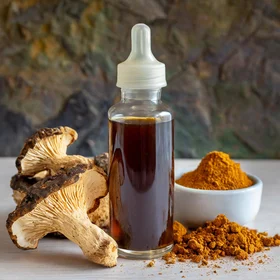Buy Shrooms, CBD, LSD
Are Mushroom Supplements Addictive?
With the rising popularity of functional mushrooms in wellness circles, it’s natural for people to ask important questions about safety and long-term use. One common concern is: Are mushroom supplements addictive?
The short and simple answer is no — functional mushroom supplements are not addictive in the traditional or clinical sense. They do not contain psychoactive compounds that create dependency, nor do they trigger the brain’s reward system in the way addictive substances like nicotine, alcohol, or certain medications do.
But let’s dig deeper into the science, perception, and practical considerations of mushroom supplementation to understand why.
What Are Functional Mushrooms?
Functional mushrooms are specific species of mushrooms used for their health-promoting properties. These include:
- Reishi – for stress relief and immune balance
- Lion’s Mane – for cognitive function and nerve regeneration
- Cordyceps – for energy and stamina
- Chaga – for antioxidant and immune support
- Turkey Tail – for gut health and immune modulation
Unlike psychedelic mushrooms (which contain psilocybin and can affect perception), functional mushrooms are non-intoxicating and non-habit-forming. They are typically consumed as powders, capsules, teas, or extracts.
What Makes a Substance Addictive?
To understand addiction, we need to look at what qualifies a substance as addictive. Most addictive substances:
- Trigger a dopamine response in the brain’s reward center, creating feelings of euphoria.
- Lead to tolerance, where the body needs more of the substance to achieve the same effect.
- Cause withdrawal symptoms when use is stopped.
- Create psychological or physical dependence, making it difficult to quit.
Mushroom supplements do not meet these criteria.
They support the body’s natural systems—such as the nervous system, immune system, and endocrine system—but do not override or hijack them. In fact, many mushrooms act as adaptogens, helping the body maintain balance rather than causing chemical disruptions.
Why People Might Feel Dependent on Mushroom Supplements
While not addictive, some people report that they “can’t go a day without their mushroom coffee” or that they “need Lion’s Mane to stay sharp.” This isn’t addiction—it’s simply habit or routine.
Functional mushrooms may help you feel better:
- More focused with Lion’s Mane
- More relaxed with Reishi
- More energetic with Cordyceps
If you stop taking them, you might notice a difference, but that’s not because your body is chemically dependent — it’s because you’re no longer getting the support you’ve grown accustomed to.
Think of it like exercise or green tea: these habits promote well-being, and people miss them when they stop — but they’re not addictive.
Can You Build a Tolerance to Mushroom Supplements?
Another related concern is whether the body builds tolerance over time. With most functional mushrooms, there is no evidence of tolerance developing when taken in recommended doses.
In fact:
- Lion’s Mane may have compounding benefits, meaning its effects on the brain and nervous system grow over time.
- Reishi and Cordyceps support hormonal and immune balance rather than overstimulating the body.
Some practitioners do suggest cycling (e.g., 5 days on, 2 days off) as a precautionary approach, but it’s not due to addiction concerns — rather, it’s a general strategy used with all adaptogens to encourage sensitivity and balance.
What About Psychedelic Mushrooms?
To clarify: psychedelic mushrooms (like Psilocybe cubensis) contain psilocybin, which can affect consciousness and perception. However, even these mushrooms are not considered physically addictive.
Studies show that psilocybin does not create chemical dependency, and in clinical settings, it’s being studied as a treatment for addiction — not a cause of it.
That said, psilocybin mushrooms are very different from functional mushroom supplements and are typically used under guided therapeutic or ceremonial supervision.
Are Mushroom Supplements Safe for Long-Term Use?
Yes, for most people, functional mushroom supplements are safe to use long term. Still, it’s smart to:
- Choose organic, high-quality products
- Avoid mushrooms if you have fungal allergies or certain autoimmune conditions
- Speak to a healthcare provider if you are pregnant, nursing, or on medication
Final Thoughts
Mushroom supplements are not addictive — neither physically nor psychologically. They do not contain habit-forming chemicals, and they do not hijack your brain’s reward system. Instead, they offer a natural, holistic way to support wellness, with benefits that build over time.
If you enjoy the calm of Reishi, the clarity of Lion’s Mane, or the endurance of Cordyceps, you’re not addicted — you’re simply tuned in to what helps your body and mind thrive.
As with any wellness practice, listen to your body, take breaks if needed, and choose quality over quantity. Mushrooms are allies, not crutches — and when used mindfully, they can be part of a sustainable, nourishing lifestyle.

